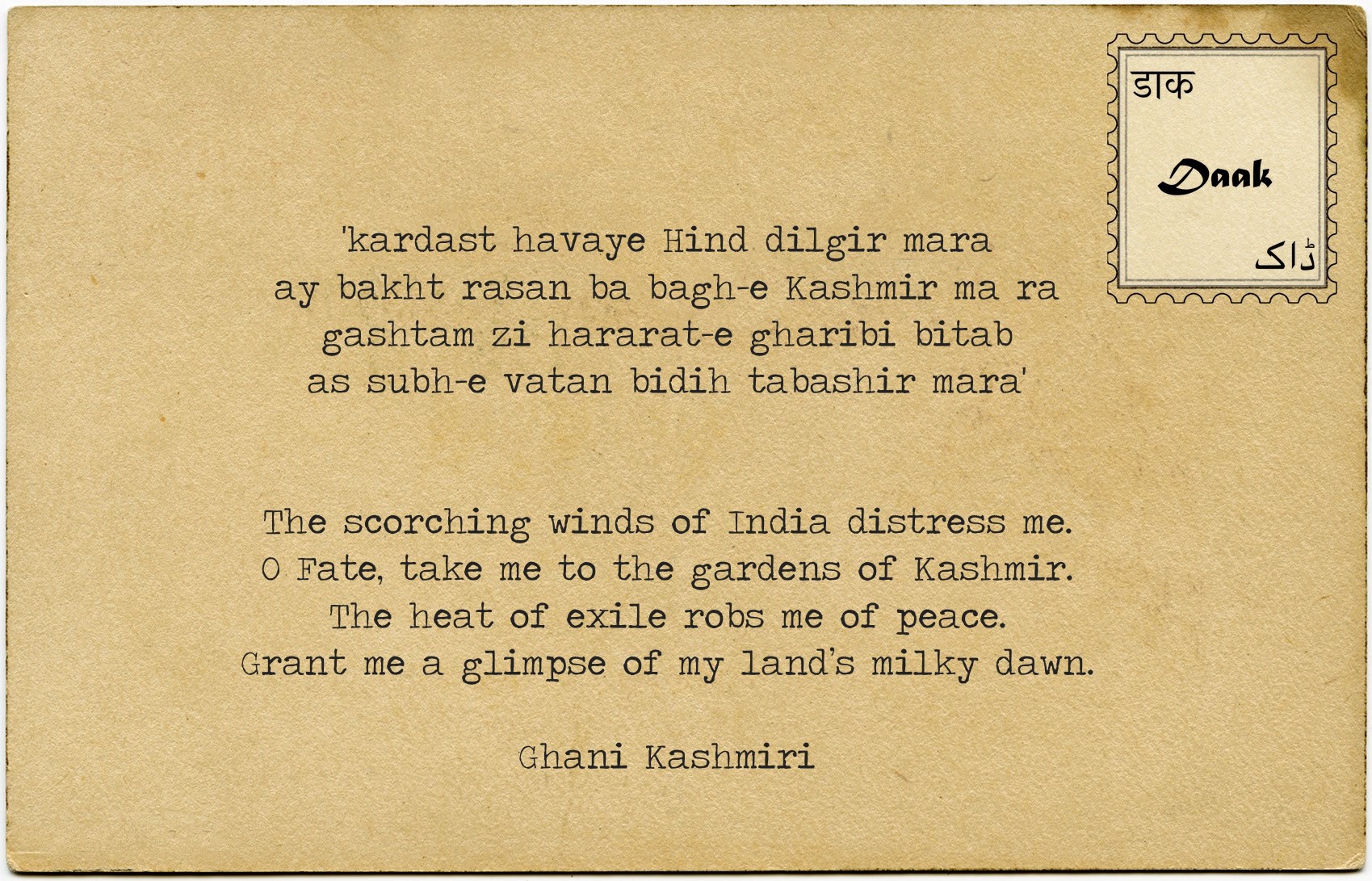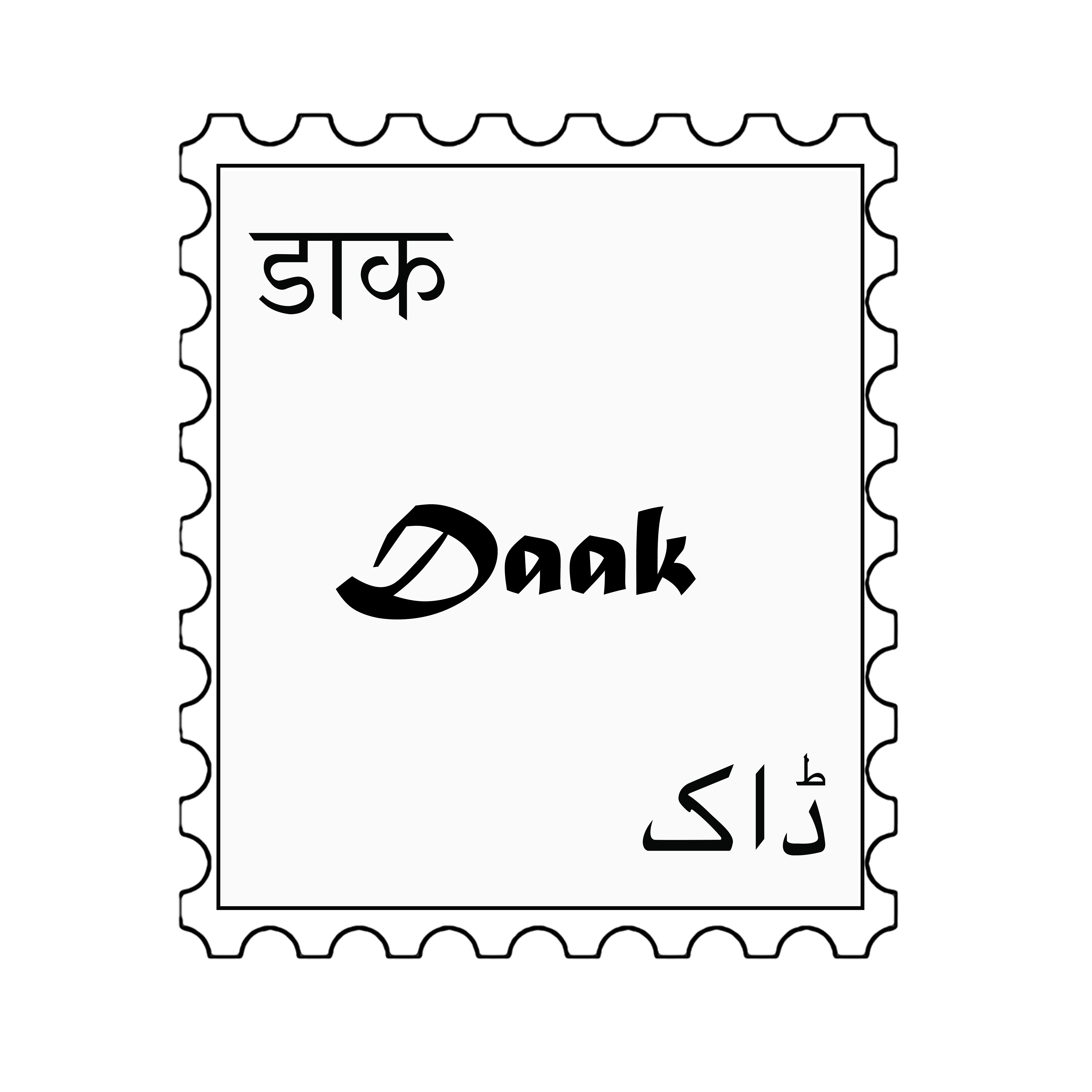
Masnavi Shitaiyah: Ghani Kashmiri’s Detailing of Frozen Kashmir
Mulla Muhammad Tahir Ghani, known as Ghani Kashmiri, is one of the foremost Persian language poets in the subcontinent and possibly the most popular Persian poet of Kashmir. While his biographical details are obscure, he likely lived in the first decade of the 17th century in the old city of Srinagar.
Accounts suggest that he very likely lived all of his life in Kashmir – spending very brief periods outside. One instance of his traveling to the Indian plains and a rare journey seems to have ill-agreed with him:
kardast havaye Hind dilgir mara
ay bakht rasan ba bagh-e Kashmir ma ra
gashtam zi hararat-e gharibi bitab
as subh-e vatan bidih tabashir mara
The scorching winds of India distress me.
O Fate, take me to the gardens of Kashmir.
The heat of exile robs me of peace.
Grant me a glimpse of my land’s milky dawn.
Strong cultural, linguistic and religious and literary ties with Iran existed since 14th century between Kashmir. Kashmir came to be known as Iran-e-Saghir (Minor Iran). Translations were aplenty – between Sanskrit, the original language of Kashmir, and Persian, a lot of diffusion took place here. Persian as the official court language, flourished. Persian provided a new vocabulary, new idiom to Kashmiri replacing Sanskrit. Ghani Kashmiri flourished in this time.
His poetic repertoire has odes to the homeland – vivid, dramatized descriptions of its beauty and climate.
Kashmir az sabahat raushangar-e jamal ast
Hush-e siyah anja gar hast khal khal ast
Kashmir’s beauty sparkles through its fairness.
Black beauty here, if any, is as rare as a mole.
Yet, in an interesting masnavi, he takes many verses to describe the biting cold of Kashmir – in great detail and with plenty of humor. Below are some verses from Masnavi Shita’iyah and the full poem in translation.
The minstrel’s hand is without a drum.
It seems the dewy song has frozen too.
Cold has turned water into ice.
Etching it is like etching a stone.
In all this, the duck in the water croons
‘Lucky the bird that’s become a kebab.’
He ends this poem describing a personal predicament,
aziz par naranam zi sarma sukhan
ki yakh paraye shud zaban dar dahan
This winter’s tale I can no longer narrate
For the tongue is now an icicle in my mouth.
The full poem:
Masnavi Shita’iyah
In this season where the water is frozen
Every bubble has become a glasshouse.
The stream flowing across the garden
Looks like a line drawn on the page.
The minstrel’s hand is without a drum.
It seems the dewy song has frozen too.
Cold has turned water into ice.
Etching it is like etching a stone.
In all this, the duck in the water croons
‘Lucky the bird that’s become a kebab.’
The spark too has been struck by the chill
And has hid itself back in the flint.
The spark and flame are together no more.
The chilly drought has torn them apart.
No sooner does a spark rise from the fire
Than it turns into a hailstone.
Such is the nip in the biting air
That the moist eye resembles a stony glass.
Scared to their bones now men are of water
Like the mirror they hide it under the earth.
The means of living are in the hands of Chinar
Which in autumn has provided for fire.
The fish offers itself to the hook
In the hope that it might see fire
So cold has the oven of the sky become
No longer visible is the bread-like sun
Can a stream flow on the face of the earth
When the sun’s eye itself is frozen?
Release from the stinging cold does the fish find
When it slits itself with the icicle’s sword
No fear of water does the snow show.
IT floats on its surface like foam.
The ember glowing in the brazier
Looks like a gem in the casket.
He who relaxes his hold on the chair
Finds himself skating on the ice.
And he who breaks his leg on the ice
Is plastered there on the wooden plank.
His joy knows no bounds if a sad soul
Gets hold of a few flint stones.
How could one walk on the murky earth
If it were not covered with planks of ice?
Agonized such is the fish by the chill
It seeks to flee from all that is wet.
Every sigh that soars up to the sky
Becomes a snowflake and falls to the ground.
Behold the game that the winter plays
Fashioning myriad mirrors from water plain.
Though a flame hides within its breast
The leaf of chinar breathes no warmth.
And he whose life leaves him in this chill
Prefers hell to escape the cold.
As children make their way to school
They practice skating on the planks of ice
He is wise who in this season
Clings to the stove like a madman.
Narrating this, my tongue is coated with ice.
My breath, it seems, has frozen to make another tongue.
And when the chill turns chillier still
Like the ear, even the mouth turns still.
The tear which drops from the crying eye
Freezes like the wax dripping down the candle.
All this is known to the wise ant
Which entombs itself when alive.
This winter’s tale I can no longer narrate
For the tongue is now an icicle in my mouth.
Trans: Mufti Mudassir Farooqi and Nusrat Bazaz
Source: The Captured Gazelle, Penguin

Leave a Reply